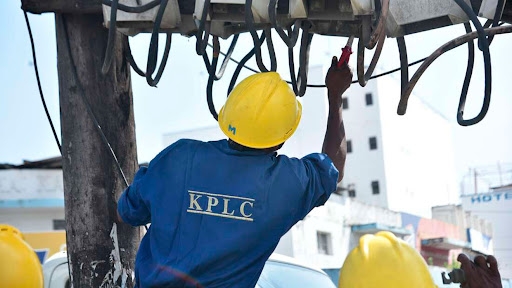Two weeks after the Kenya Premier League resumed, unruly players assaulted a match official, earning it a bad reputation.
The sad incident happened during a tense league encounter between defending champions Tusker and 13-time champions AFC Leopards at the Moi Stadium, Kasarani on Sunday.
A tumultuous melee ensued between Tusker players and the referee, following a penalty awarded to Leopards in the dying minutes after goalkeeper Patrick Matasi handled the ball outside his area.
In the heat of the fracas, the referee grabbed the lower part of his stomach and fell to the ground panting in pain.
Reports also indicate that journalists lost various equipment and valuables to rogue fans who equally exhibited a churlish temper.
Regardless of their concerns, players do not have the right to attack a match official. There are many civilized ways to resolve such disputes and they should have followed the right path.
A few days before the match, AFC Leopards had asked Tusker to find an alternative stadium.
Leopards team manager Albert Wesonga said the facility is currently not in a good condition to host a football match.
He nonetheless forgot to express his concern about the safety of the stadium where another referee was subjected to violence last year when record champions Gor Mahia played against Vihiga Bullets.
Such behaviour calls for classical objurgation. Fifa rules indicate the type of punishment that may befall a player who assaults a referee during a match.
In the offense section, the Chapter provides guidelines for aggression in matches and competitions, and in particular the attitude of players to match officials.
According to Chapter 2 of Fifa’s Rules on Indiscipline, players and officials will be suspended for misconduct and may be fined accordingly for a minimum of ten matches or a reasonable time for intimidating or threatening a match official.
They also risk being banned for 15 matches or the appropriate time for assaulting a match official, including elbowing, punching, kicking, biting, spitting, and hitting.
A player or official who, in the context of a match or competition, publicly incites others to hatred or violence will be sanctioned with a ban from participating in any football-related activities for not less than six months and a fine of CHF 5,000 (Sh 465,000).
If left unchecked, such incidents can be very costly for the country in the long run. On September 11, 2013, Fifa fined Kenya Sh465,000 for inappropriate fan behavior during the second leg of the 2014 World Cup qualifier Group F against Nigeria in Nairobi on June 5.
In a brazen display of contumelious epithet, fans threw plastic water bottles and other objects onto the field during the match at the Moi Kasarani, where the Super Eagles won 1-0.
Kenya was ordered to pay Sh930,000 in costs and expenses, a decision implemented by Article 67 part 1 and Article 15 of the FDC.
As we speak, Fifa has opened disciplinary proceedings against Uruguay after four of their players assaulted a referee at the end of their World Cup Group 'H' match against Ghana which they won 2-0.
Jose Maria Gimenez, Edinson Cavani, Fernando Muslera, and Diego Godin allegedly confronted the match officials after they failed to award a penalty.









